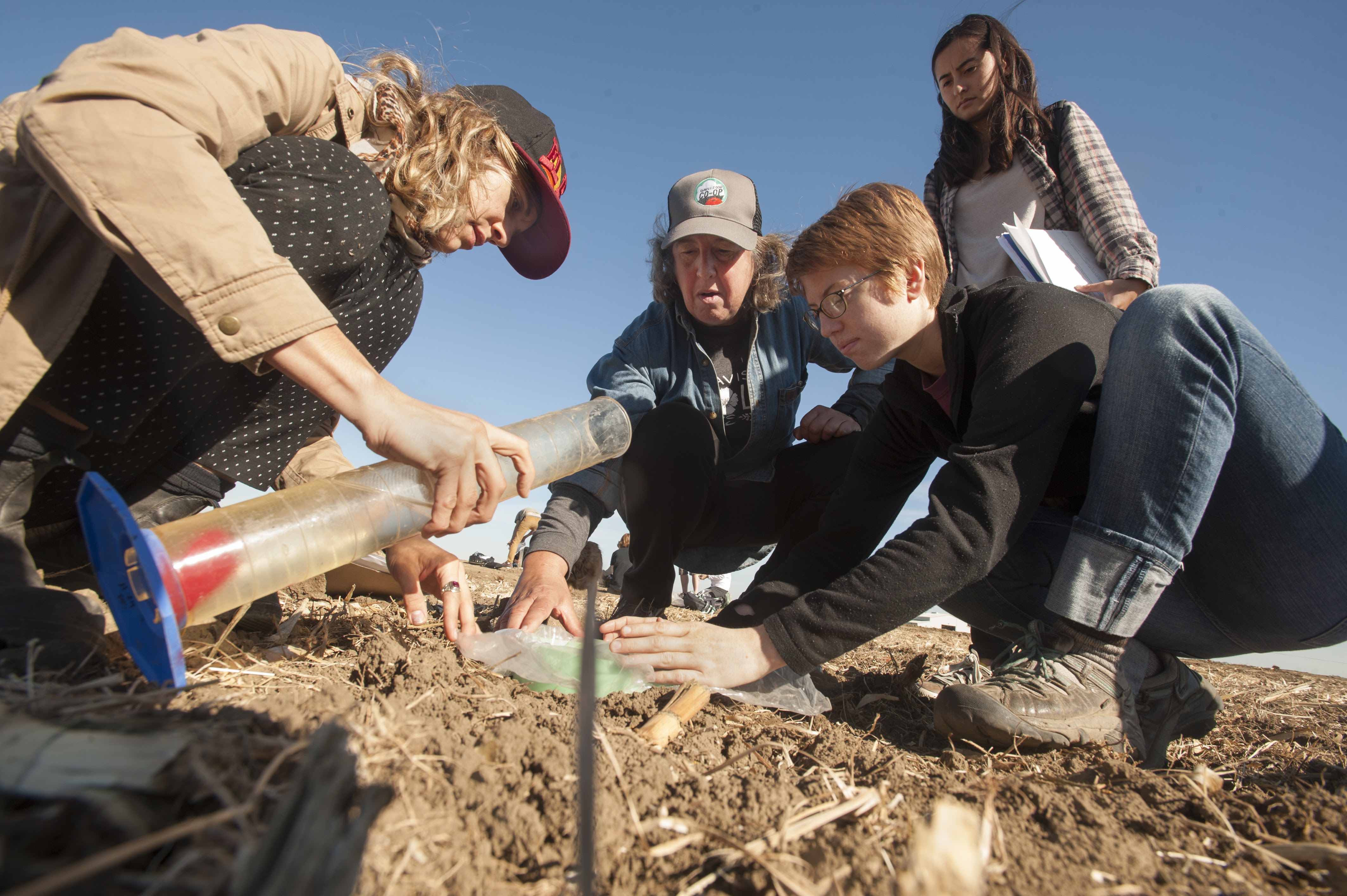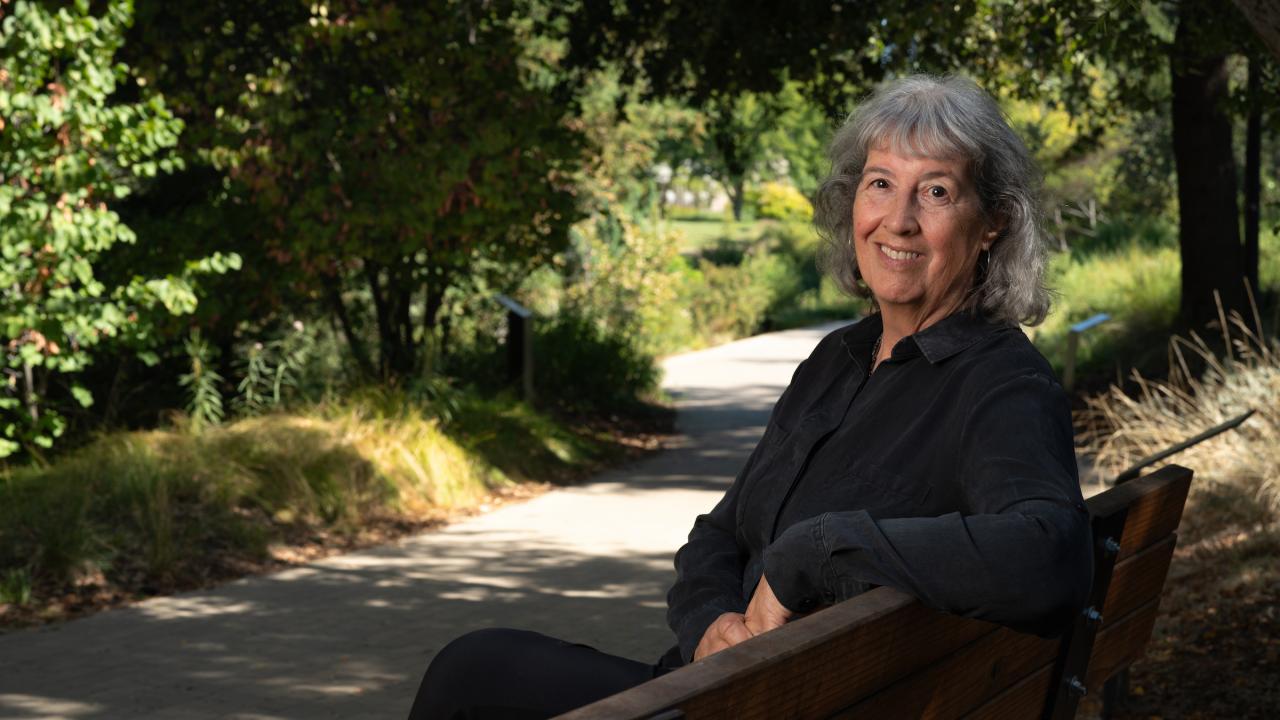There is a whole world inside soil, shaping our everyday existence.
“Soil is fundamental to the functioning of Earth,” explained Kate Scow, who described soil as “alive” and “among the most biodiverse environments on the planet.”
Scow is a distinguished professor emeritus of soil science and microbial ecology in the Department of Land, Air and Water Resources. She was previously the director of the Russell Ranch Sustainable Agriculture Facility, the chair of the International Agricultural Development Graduate Group and the chair of the graduate group of Soils and Biogeochemistry.
In 2022, Scow was inducted into both the National Academy of Science and the National Academy of Engineering for her pioneering research on soil microbial communities and their roles in ecosystem processes, as well as for advancing low-cost, biologically based strategies for groundwater cleanup and soil carbon sequestration.
AMONG THE ACADEMIES
UC Davis has more than 50 faculty members who belong to the National Academies of Sciences, Engineering and Medicine, a recognition of their distinguished and continuing achievements in research. The academies are among the most prestigious membership organizations in the world.
Each month, Dateline UC Davis will profile one of these faculty members in honor of their contributions to scientific research and knowledge.
“I ended up pursuing two parallel yet intertwined ‘careers’ — one in environmental engineering, the other in agroecology,” she said of her time at UC Davis, noting that both are “rooted in shared disciplinary foundations but shaped by distinctly different cultures and landscapes.”
Scow fell in love with soil while working in Boston at a consulting firm, where she conducted environmental impact studies and worked for the Environmental Protection Agency on risk assessments of highly toxic pollutants in soil.
“I was drawn to [soil] microbes not just as individual organisms, but actively shaping the living landscape,” Scow recalled. “That interest deepened as I realized how central microbial processes are to ecosystem health and resilience, and how often they are overlooked in environmental assessments and decision-making.”
After earning a master’s and doctorate from Cornell, Scow joined the UC Davis faculty in 1989. The university appealed to Scow because of its “mission-based research and cross-disciplinary collaboration.”
Early in her career, Scow helped shift the paradigm in bioremediation of contaminated environments by showing that stimulating native microbial populations, rather than inoculating with introduced organisms, could drive the successful cleanup of polluted groundwater.
Scow has been recognized for establishing the central role of microbial diversity in soil health and sustainable agriculture. Her research demonstrated how practices like cover cropping, composting, and reduced tillage alter microbial populations and feedback into critical soil processes.
“We also discovered that soil microbial communities are not randomly distributed, but follow predictable spatial patterns shaped by soil type, land use, and management,” Scow detailed. “This work helped lay the foundation for the development of soil microbial biogeography.”

In 2023, Scow led and was a member of a committee that developed the first comprehensive white paper on soil biodiversity in California’s agriculture. She emphasized the importance of paying more attention to what goes on belowground, not just aboveground.
“When [soil’s] the needs in soil are ignored, then the microbial functions that sustain crop production become compromised,” Scow described. Her research helped develop new methods for characterizing the soil microbiome, providing valuable tools to monitor the status of soil biota.
“Soils are in deep trouble,” Scow warned, noting that already “one third of the earth’s agricultural soils are considered highly degraded.” She believes that increased attention to soil biodiversity is vital for the protection and restoration of soil ecosystems.
Emerging areas of study are drawing people and soil closer together, according to Scow, who noted recent research on how exposure to soil impacts a person’s immune system.
“This connection between human health and soil, especially the soil microbiome,” Scow projected, “is going to become an increasingly important lens for how we think about health and the environment.”
